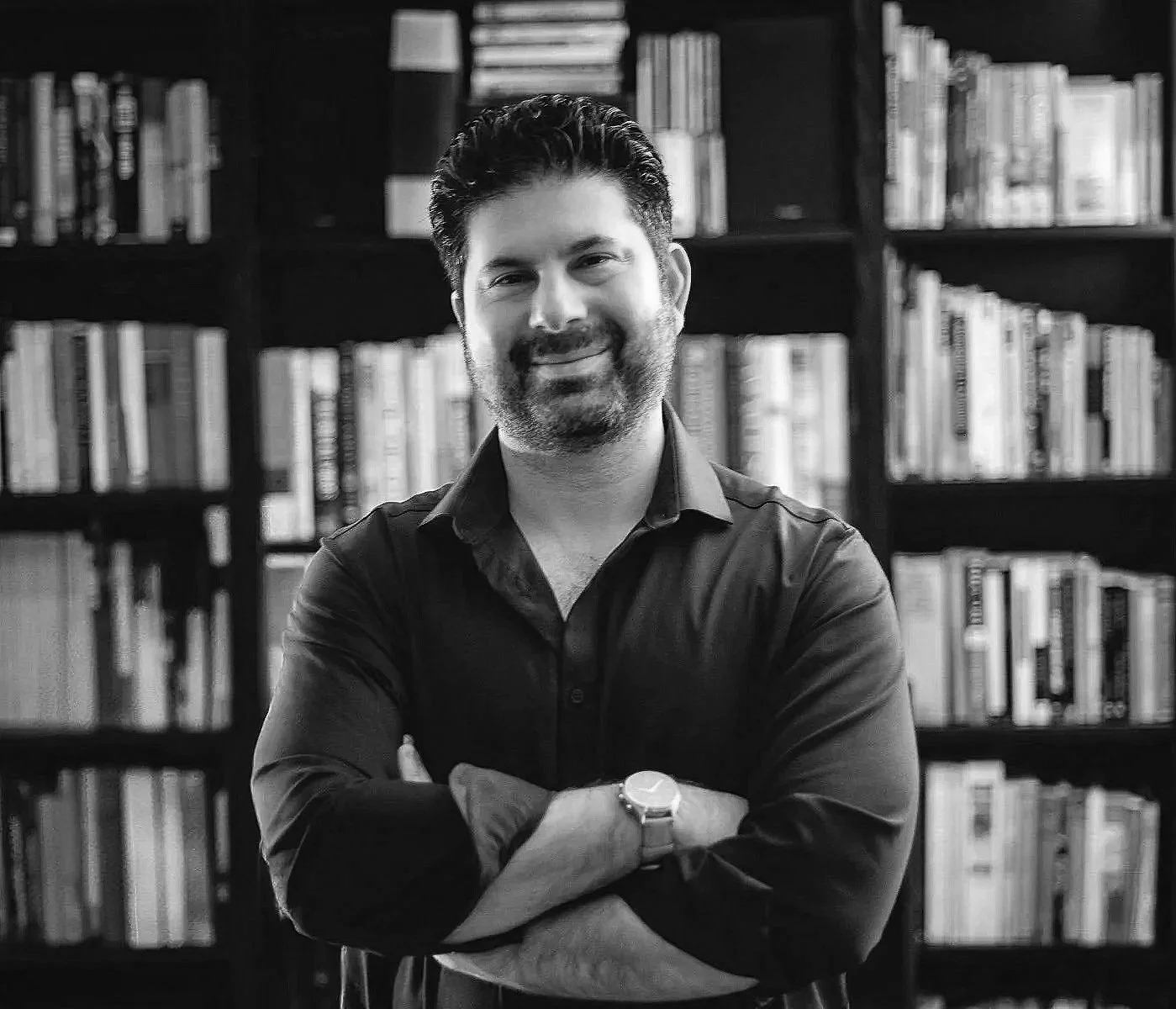231. gen z mental health: is it really that bad?? - a pediatrician’s take feat. dr. ken ginsburg
listen to this episode:
Tune in and subscribe on your favorite platform: Apple Podcasts | Spotify | YouTube | Amazon | GoodPods | Castbox | iHeart Radio | overcast | pocketcasts
today’s guest is dr. ken ginsburg— a pediatrician specializing in adolescent medicine at the children’s hospital of philadelphia and a professor of pediatrics at the university of pennsylvania school of medicine. his research over the last 35 years has focused on facilitating youth to develop their own solutions to social problems and teaching clinicians how to better serve them.
in this episode, we unpack some of the most common myths and misconceptions about gen z mental health before diving into how gen z can collaborate with their families to get the mental health resources they need. finally, we share some essential steps for gen z to build their mental resilience and have strong mental health.
we talk about:
what traits define gen z + common misconceptions about this generation
negative labels about gen z + whether they’re accurate
if gen z is really in a mental health crisis
our response to parents who criticize gen z’s focus on mental health
key steps gen z can take to improve their mental health
a popular criticism of gen z and whether we agree with it
current mainstream issues like the male loneliness crisis
advice for parents on supporting their teens + getting them to accept help
supporting a friend or a loved one who’s struggling
four things that everyone in gen z needs to know
one major way to build resilience
+ so much more!
Mentioned:
SHOP GUEST RECOMMENDATIONS: https://amzn.to/3A69GOC
About She Persisted
She Persisted is THE Gen Z mental health podcast. In each episode, Sadie brings you authentic, accessible, relatable conversations about every aspect of mental wellness. Expect evidence-based, Gen Z-approved resources, coping skills (lots of DBT), insights, and education in each piece of content you consume. She Persisted offers you a safe space to feel validated and understood in your struggle while encouraging you to take ownership of your journey and build your life worth living.
a note: this is an automated transcription so please ignore any accidental misspellings!
Sadie: [00:00:00] Welcome to She Persisted, the Gen Z Mental Health Podcast. I'm your host, Sadie Sutton. Let's get into it.
Ken Ginsburg: We have to stop treating adolescents as if they're broken, and we have to refute the huge lie that they don't care what adults think.
Mental health is not the same as being happy.
We need the generations supporting each other, not being separated from one another.
All humans, need to know the following facts.
Stop blaming a generation for a state of brokenness and understand what they're seeing.
So the truth about adolescents is...
Gen Z is constantly complaining that they're the most sensitive generation. Other generations could handle their mental health. Why can't Gen Z? tired of hearing comments like that, this episode is for you.
Hello, hello, and welcome back to She Persisted. I think we can agree that as a society we're divided on so many things these days, this week especially, and one thing that is very relevant to our lives in this [00:01:00] podcast is Gen Z, mental health.
I can say without a doubt that Gen Z is one of the first generations to talk so openly and so vulnerably about mental health, but a lot of people have suggested or believe that this comes at a cost. I have a mental health podcast. I plan to pursue a career talking about mental health and my experiences. you guys can probably guess where I stand on this issue, but I wanted to bring on an expert today to talk about if Gen Z is really a struggling generation or if other generations have this wrong. So in today's episode, we have a leading voice on Gen Z Health, Dr. Ken Ginsburg. He's a pediatrician specializing in adolescent medicine at the Children's Hospital of Philadelphia, also known as chop.
He's a professor of pediatrics at the University of Pennsylvania School of Medicine. He's a plethora of valuable experience on what Gen Z is struggling with and how we can help us and them, depending on who you are listening, have the best possible mental health outcomes.
So if [00:02:00] you wanna understand more about Gen Z, Why we're labeled as the struggling generation, whether or not that stigma and perception is true, and what we can do to improve our outcomes, you have come to the right place. If you're a part of Gen Z, this conversation is tailored exactly for you, like what's really happening, what.
We might be getting wrong in what we can do better. And if you are a parent, loved one community member of Gen Z, this episode will help you understand the mindset of what it's like to grow up in this generation, what we're experiencing and what you can do to us as we grow So without further ado, let's dive in.
Speaker: well, Dr. Ginsburg, thank you so much for joining me on g Persisted today.
I'm so excited to have you here. Your name has been on my radar since I got to Penn, , since I've been hosting the podcast for a number of years. Your position in the mental health space, especially with respect to teens and parenting, is so aligned and so I'm so excited to have this conversation and pick your brain about how Gen Z is doing, how that [00:03:00] reflects to the ways that we're coping, how we view Gen Z, , and what you wish will shift over the coming years.
Oh,
Ken Ginsburg: Citi, it's a pleasure to be with you. , And you've also been on my radar because I get really excited about future leaders.
Speaker: Oh, thank you so much. If not, courage
Ken Ginsburg: leaders. Pretty excited.
Speaker: That's so sweet. Um, , So I wanted to start with your background because a lot of people do go into the adolescent medicine, but you're in a really unique position with the populations you work with and also this like strength-based approach, which I think we both have.
Felt isn't always something that's reflected in the media or in how we generally as a society talk about young adults. And so I'm curious going into medicine, what drew you to adolescents specifically and then this specific subset of going strength-based approach, really centering the adolescent voice in your work.
Ken Ginsburg: Right. Well, I'm a pediatrician and I am a specialist in adolescent medicine, which means I get to have the privilege of working with some of the coolest people on the planet, people who [00:04:00] are discovering who they are, and imagining how they're gonna make a difference in the world. And so much of what I need to do as both a clinician, a researcher, and an advocate for adolescents, is make sure that people actually understand who they are.
Because there are mythologies about who adolescents are, and those mythologies are not just casual ways we talk. They're Undermining. They. Really hurt human beings in terms of their self perception. So the truth about adolescents is that adolescents are inspirational, courageous.
They care deeply about justice. They care about risk and want guidance from people. In terms of how to, Stay safe and stay wise. They actually love adult guidance. Yeah. , So that's the truth. And we need to know that because we have to stop describing adolescents as risk takers. We have to stop treating them as if they're broken, and [00:05:00] we have to refute the huge lie that they don't care what adults think.
Because we need the generations supporting each other, not being separated from one another.
Speaker: Yeah. You mentioned that the way that we talk about any demographic, but especially young adults, adolescents, teens, these are all the different research lingo we use for varying years. , Can be really harmful and it can be really damaging.
And I think I've had this conversation a lot with, whether it's people through the podcast or people that are doing research in the space of like, you just respond negatively when someone is like, oh, you're the anxious generation, or you're the most depressed, or. Struggling or Gen Z is lazy. Like all of these labels don't feel good.
And maybe you respond in a way that's like, well, I'll show them and I'm not that type of person. Or maybe it is more of like a self-fulfilling prophecy where you're given this label, you're told you're supposed to feel this way, that your peers are feeling this way, [00:06:00] and you, you start to kind of emulate that label.
And so I'm curious, the labels you're hearing being so embedded in this. Space and what the harms are of labeling Gen Z because we are labeling them in, I would say, almost an unprecedented way and not necessarily for the positive.
Ken Ginsburg: Gosh, I have so much to say about this. Yes. Let's take it up a level and let's remember what adolescence is.
Adolescents is the time we're reforming our identity. The big questions are, who am I? Am I normal and do I fit in? Which means you are looking in your environment for answers to Those questions? Yeah. Who am I? Am I normal? Well, if the world is telling you that who you are is semi broken and that what is normal is to be highly anxious, then you'll absorb that messaging.
So absolutely it backfires. It backfires for this phase of development, but more so it's not accurate. [00:07:00] It's not accurate. So two main points I want to make Sadie. One is when we talk about adolescents being anxious or being depressed, let's , begin looking. At the reflection in their eyes. And let's stop blaming a generation for a state of brokenness and understand what they're seeing.
And what they're seeing is a society that's actually divisive, , , not really handling a lot of problems well. So I would say that there's a certain normalcy to being anxious. And then the one other final thing I wanna say. The fact that numbers are going up is a red flag.
Speaker: Yeah.
Ken Ginsburg: It's something we should pay attention to and it's something we should celebrate.
You were talking to a 63-year-old guy who was deeply depressed when I was 17, dangerously depressed when I was 17, and if you handed [00:08:00] me a survey saying, how you doing? I would've checked off.
Speaker: Perfect. Amazing. Fine. Yeah,
Ken Ginsburg: because I would've been lying.
Speaker: Mm-hmm.
Ken Ginsburg: So let's celebrate a bit, a few things.
Let's celebrate that more people are transparent about what they're feeling, which allows them to get the guidance that they deserve. Deserve, not need. They're not broken. We wanna prepare them for a better world point line. Point to let's celebrate who these human beings are. As a guy who's devoted my life to protecting children and upholding families, , what I will tell you is that my superpower is my sensitivity.
And that sensitivity before I figured out how to manage it looked like anxiety and like depression. And when I learned how to manage it, I understood it for what it was a superpower. And I've used it as best I could. [00:09:00]
Speaker: I have so many areas that I wanna touch on there. My first thought that comes to mind is, what do you say when people say, we're not looking at self-report, we're looking at these like external measures, like emergency room visits or incidences of self-harm.
That is used as data to suggest that mental health rates are rising independent of how comfortable we are being vulnerable, which is such a strength when people are like Gen Zs and like, are you kidding me? Like we are so incredibly vulnerable. Vulnerability takes so much bravery. Yes. And it's an incredibly strong thing to be able to go do someone that you really care about, a family, a friend, a clinician.
And admit that you're struggling and need support. And so what are your thoughts on these quote unquote external measures, whether I, another example would be like stimulant prescriptions where people are saying, okay, young adults are struggling more. And it's not just that they're saying that they're struggling more and they're more open to verbalizing that, but these like external markers also rise.
Ken Ginsburg: So let's be clear. Two [00:10:00] things can be true at once.
Speaker: Yeah.
Ken Ginsburg: Let's also be clear, while I support a strength-based approach. I don't have blinders on.
Speaker: Yeah.
Ken Ginsburg: I'm a, I'm an adolescent doctor. My job is to protect kids who are in distress.
Speaker: Mm-hmm.
Ken Ginsburg: Right? So yes, I acknowledge that there is real depression, there is real anxiety.
There's no question about that. And we need to take away the shame and stigma, come up with the plans to support this generation and humans in general. Let's be clear. But let's also be clear that them showing up to the emergency rooms and their self-report, like you said, is an act of tremendous bravery.
Yeah. And is the beginning of what I hope to be, the shattering of the stigma that prevents people from getting help. Yeah. Right. Adolescence is this unique time where you're figuring out who you are, your head is spinning, let's support them through it. But let's also take some [00:11:00] responsibility as adults for the world that we are creating that is anxiety provoking.
Speaker: Yes. Yeah. , So you mentioned that. Adolescents are more vulnerable with what they come forward with, what they're struggling with. And I would say that there is a large number of people that will respond to that and say, well, in my day, all these people weren't saying that they were struggling in my day.
This never occurred in such a prevalent manner. And to some respect, it does speak to what you're saying, that something that we're doing as a society is ineffective. And I think there's some of that narrative there. And also in turn, sometimes there's the messaging that it's. Wrong to feel this way, or it's wrong to have this distressing response to being in a distressing context and that we should be stronger in some way or responding to the situation differently.
I'm curious how you respond to parents who are a huge part of treating adolescents because it's, you're not just treating the teen in isolation. Who say things like that, like, well, I never knew anyone struggling as a [00:12:00] teen, or We all used to cope with this and not have any challenges with mental health.
Like how do you combat that in a way that's effective in changing minds and also changing behaviors so that it positively impacts these environments that adolescents are in.
Ken Ginsburg: So first off, I don't think there's been any time in human history where nobody was struggling. Yeah. , What was happening is that people were suppressing their truth.
Speaker: Mm-hmm.
Ken Ginsburg: And I would ask people to think hard and to recognize that there was a lot of people out there who were suppressing their truth. Yeah. And. When you started your statement, you said, this generation is more vulnerable, and I just like to put a word in front of it, which is more transparent about their vulnerability.
Speaker: Yeah.
Ken Ginsburg: And this is an absolute strength. Yeah. But let's remember being distressed, being sad about things that are sad. Yeah. Being anxious about things that are worrisome. These [00:13:00] are signs of mental health. Mm-hmm.
Speaker: Stop. Explain mental health. Yeah, you gotta add caveat.
Ken Ginsburg: Really, really listen to that statement.
If you are sad about things, that should create sadness. If you are anxious about things that should create anxiety, then you are mentally healthy. What makes you not healthy is if you cope. In a way that is harmful to you? Yeah. Point one and 0.2, if you are persistently anxious or sad, if you can't function because your mood is affected, then you need therapy and treatment.
Mm-hmm. But Mental health is not the same as being happy. That is one of the great. Problems that we as a society, not this generation, we as a society have, and that we as parents have. We think our kids are supposed to be happy all the time. Yeah. Well, they're not. They're [00:14:00] supposed to learn how to manage a world that is complex.
That means sometimes being sad, sometimes being anxious, sometimes being angry, and sometimes being exuberant, joyful. What we want is to know how to cope. Mm-hmm. We can either cope in negative ways that are the quick, easy fixes, but very harmful and create more problems like drugs make you feel great for a few minutes to destroy your life.
Speaker: Yeah.
Ken Ginsburg: Right. or if we change our eating patterns, if we have unhealthy relationships, those are unhealthy ways of coping. Mm-hmm. But. If we learn how to manage problems, if we learn how to manage emotions, , if we, , learn how to create a strong body that can manage stress through proper nutrition, proper sleep, knowing how to relax and knowing when and how to use exercise.
And here's the last big piece is. If we position ourselves to know [00:15:00] how much we matter to other human beings. Yeah. When we have a sense of belonging and a sense of meaning, a sense of purpose, then we can get through almost anything because we are healing not for ourselves, but for all the people whose lives we touch.
By the way, I just have to say this. The plan I just gave you wasn't like a random plan. Yeah. It is a deeply thought out plan that is based on lots of evidence of what helps people cope in a positive way. And I have an interactive toolkit on parent and teen.com where people can actually fill in their own plan and have lots of videos and written materials that will teach them how to cope and.
For the parents who are listening, there's the guides for parents about how to support children and adolescents to cope
Speaker: Before we dive into specific skills and what to do as a parent if your child isn't effectively coping, or [00:16:00] how you can promote those positive coping mechanisms, I'm curious about something again related to the transparent vulnerability, which is.
There's different perspectives that being so vulnerable, , and over diagnosing or self diagnosing or normalizing these things could potentially have negative implications. And I think what you're saying is really interesting and is a nuance that gets lost, which is that saying that you're anxious doesn't have to mean you have anxiety and normalizing those behaviors and sharing that you're are experiencing them.
Fear really positive for others to not feel alone and isolated. Same thing. Feeling depressed after a distressing situation or feeling angry at a current state of affairs. So I'm curious what you say to people who almost like, don't want to encourage that extreme vulnerability that Gen Z can have in some context.
From the framework, like this is self-diagnosing, that we're normalizing mental health challenges, we're leaning away from true diagnoses and just everyone's struggling with everything. 'cause I think that's another common criticism that happens in this like generational [00:17:00] gap that exists.
Ken Ginsburg: , I agree with a lot of those statements, but let's be clear, there is mental distress, which is part of being alive.
Yeah, it's part of being human. What makes you healthy or not is how you respond to it. And how persistent it is. If it is something that lasts, then you are deserving of therapy, perhaps medicine, but the kind of professional support that will get you to be more comfortable and to function.
Speaker: Mm-hmm.
Ken Ginsburg: Right?
, But what we want to do is help people understand that you can be mentally healthy. And distressed. That's the problem. And this is not a problem of Generation Z. This is a problem of multiple generations about what happiness is supposed to look like, right? Mm-hmm. And what the human condition is supposed to look [00:18:00] like.
And we are supposed to live in a complicated world and cope with it. Yeah. That's what success looks like.
Speaker: So I'm curious this like idea of happiness when we in research look at other metrics like flourishing, which doesn't necessarily mean being happy all the time. At every moment there's facets of meaning and having a sense of purpose, , being able to have an experience, emotions in an effective way.
And when we see on those metrics that college students are struggling in a really big way, or another big piece of data that's coming out right now is that young men are really struggling with loneliness and mental health challenges. , And that just seems to be amplifying as they kind of continue on their professional and academic trajectories working with parents, which a lot of the times can be the root of a lot of different challenges.
Obviously there's not a clear reason or we would be able to solve it, but do you have any thoughts on why we're seeing young adults struggle in such extreme real and distressing ways? Like we [00:19:00] haven't historically?
Ken Ginsburg: So let's be careful with the, like we haven't historically Yes. Like we haven't recorded.
Noted, yes. Or diagnosed historically. Yes. Let's start there.
Speaker: I love that.
Ken Ginsburg: All right. But. , Yeah. Human connection is the solution to almost all of this.
Speaker: Yeah.
Ken Ginsburg: Having a sense of meaning and purpose. Having a sense of belonging that is at the root of resilience, that is the root of flourishing. So while I do not want to blame modern communication as the source of all problems, I also don't wanna deny it's a real issue.
Yeah. Right. When, when you are trying to figure out who you are. And you then go onto social media and the algorithms can expose you to all sorts of toxic messages.
Speaker: Yeah.
Ken Ginsburg: About who you are. That's truly dangerous. Mm-hmm. When social media can, take over your life and then you think you're supposed to be Instagram perfect or you're going to be offended by people [00:20:00] very easily who don't understand that there's a real person behind your likes, your dislikes, and your trolling.
Speaker: Yeah.
Ken Ginsburg: These are real issues. So what I would say to families out there is that I personally don't know how to. Solve this issue unilaterally. Yeah. What I do know is that human connection matters and that when we have children, when we have adolescents, there has to be a time for us to look face to face, eye to eye and talk, and it doesn't have to all be talking about intense stuff.
Instead, we want true high yield human interactions. Right? Mm-hmm. And the falsehood is that a high yield interaction is, darling, let's talk about your pain. Let's talk about your grades. Let's talk about your trophies. No. A high yield interaction is helping human being know all that is good and right about them.
Speaker: Yeah. Yeah. A
Ken Ginsburg: high yield interaction is sometimes just enjoying each other. Mm-hmm. Just chilling as a family. Right. [00:21:00] That's what gives people a sense of belonging and a sense of meaning. Mm-hmm. The power of parents is this you? Know who your child is. Everything that's good and right about them. You know?
What made you proud when they were little? You know when something they did made your smile turn into laughter? Yeah. 'cause you couldn't hold it in, you know, their kindness, their gentleness, their, , commitment to justice, maybe their stubbornness that comes from you. You know it all. Mm-hmm. And you choose to love them.
Mm-hmm. That is the most protective force in a human life. The world will judge them based on their performance, your unconditional love. You're being that lighthouse for them, that stable force on the shoreline. Your unconditional love is the most protective thing in a young life. Let me just close with this thought for the parents.
Why do [00:22:00] we love so people know that they are worthy of being loved?
Speaker: Mm-hmm.
Ken Ginsburg: Pause, breathe. Because that takes them through the rest of their life.
Speaker: Yeah. Right. What do you say to parents, because this is like the number one question I get from them, and I think it parallels that idea of unconditional love and support really well.
Who either A, want their teen to go to them if they're struggling and they're not confident that that will happen. And then B, once they find out that their teen is struggling, like how do I get them help? They don't want to get mental health support and resources. So I'm curious. How do you promote that open line of communication, which I'm sure parallels the unconditional love and support. And then what do you do if your team is struggling and you need to get them to support, but they're not like gung-ho. Absolutely. So excited about mental health, resources, which I think is a position that a lot of people are in.
Ken Ginsburg: First thing I want a parent to do [00:23:00] is to remember that mental health is treatable. That this can be temporary and that this can be your child not yet Having learned how to use their superpower.
Speaker: Yeah.
Ken Ginsburg: Of deep feeling and intense emotions. Step two, look in the mirror. Before you approach your child about the importance of them getting mental health support, think for yourself how you feel about mental health treatment and until you understand how helpful it can be that it is anything but stigmatizing.
It is an act of bravery and self-advocacy until you're there. Don't approach your child if you're struggling to get there. Then join with someone who's already there to approach your child. Yeah. The third thing is, I'll tell you that probably the most used article on parent and team.com is how to guide your child towards professional help.
I literally give you the strength based [00:24:00] language. I love that. That you can use, yeah. To help your child understand it's an act of bravery that this can help and that sensitivity is a superpower we approach from that. One final thing.
Speaker: Yeah. Is.
Ken Ginsburg: parents. You don't have to have all the answers.
Speaker: Yes.
Ken Ginsburg: Young people. You don't have to have all the answers for your best friend. Yeah. You really don't. You know what you have to do? You have to show up. Mm-hmm. You have to have people who feel isolated, know they're not alone. Mm-hmm. You have to help people. You who don't think that hope is there to understand that.
In fact, treatment works, hope is there. You show up and you let people know. This issue is more than I can handle as a friend, as a mother. Yeah. But I care about you so much, and I'm gonna stand by you no matter what.
Speaker: Yeah.
Ken Ginsburg: If I have a best friend who's depressed and I've been supporting him, and now I'm over my head, and then me taking him to a counselor [00:25:00] or to, you know, , a, a student health service.
If it feels like a handoff that ends our relationship. 'cause it feels like I'm wa you know, washing my hands. Guess what? That referral isn't gonna happen. 'cause people rely on human relationships. But when instead we say, Hey, this is more than I can handle, but I remain your best friend.
I remain your dad and nothing's gonna replace me.
Speaker: Yeah,
Ken Ginsburg: we do that. The question you've asked Sadie that I keep skirting around is young men. It's just because I, I'm not trying to avoid it. Yeah. It's just that we keep going down another subject. Young men are as sensitive and as caring and as vulnerable as any other humans.
Mm-hmm. The problem is not with men. It's with this notion of gender roles that we put on human beings. Yeah. All humans, regardless of gender, need to know the [00:26:00] following facts. Self-advocacy is good.
Speaker: Yeah.
Ken Ginsburg: Right. , You don't have to be nice all the time or have people like you and. Vulnerability is a strength and that we rise together when we join together.
again. We rise together. When we join together. Vulnerability is good. Self-advocacy is good, and you don't have to be nice all the time. Mm-hmm. Those four things that all humans need to know. , Um, really tackle a lot of those gender stereotypes. Yeah. That put chains around all of us.
Speaker: Yeah, no, I, I think what you described there so many parallels to my own experience, and I loved what you said about referring someone to support, and I interviewed my therapist and she said the best language for that, which is. I love you so much that I am doing you a disservice by not getting you the support you need.
Because I'm not qualified and I'm not equipped, and I care about you so much that I will [00:27:00] risk this relationship or your mental health by trying to support you alone. And I think reframing that for them and for you is so incredibly powerful.
Ken Ginsburg: Your therapist is brilliant. She's amazing. Add the line at the end.
And the line at the end is, but I remain your,
Speaker: yeah. Right.
Ken Ginsburg: Yeah. Because if it feels like a handoff, trust me, they're not going. Human relationships are the answer.
Speaker: Yeah.
Ken Ginsburg: And we have to make therapy an and not an instead.
Speaker: Yeah. I also parallel a lot of what you said in your own story, which is that I always tell people asking for help for the first time was the hardest part.
Yeah. Because after that. You have people in your quarter and you're not alone, you're not expected to navigate this completely yourself. And there's that huge fear and vulnerability of saying, this is bigger than I can handle and this is overwhelming, and I'm. Of my element here and I need support. And having people in your corner from that point forward makes all the difference.
And I love the piece about hope. in my experience, it's funny, I was so depressed, I was so hopeless. For me, the amount of [00:28:00] hope I cultivated at the beginning of intensive treatment, I was like. 30 years from now, I think maybe I could be slightly less depressed than I am today. And that's technically, and I was like, that's the level of change that I could like be open to potentially happening.
And just that like little kernel, , of potential for positive change was what I held onto in those early days. And then once you get that momentum of starting to see change. It's easier to continue that growth, but I think both those things are so key in mental health treatment, , whether it's outpatient or inpatient, whether it's you or family member.
It's just a universal truth.
Ken Ginsburg: Amen. It is. Right? Yeah. And again, you're talking to a guy who's had a pretty excellent life, , and, , it didn't start out excellently. Yeah.
Speaker: To wrap things up, resilience. Mm-hmm. I think people listening have heard at some point these misconceptions or harmful labels that Gen Z has it too easy or they, they're lazy or they're not able to rise to the challenge. What are your thoughts on resilience when it comes to [00:29:00] this generation? And then also how do we build that resilience because it is such a superpower in all contexts, but especially mental health.
Ken Ginsburg: , We build resilience by relying on other human beings. We build resilience by maintaining strong connections, by having a sense of meaning and purpose. , By leveraging our sensitivity, we build resilience by knowing how to cope. With life's inevitable , Struggles, but again, human connection.
Human connection. Human connection, yeah. Right. That is the bottom line. We take away shame and stigma and we stop trying to define entire generations, and we begin looking at individuals.
Speaker: Yeah. Dr. Ginsburg, if people want to get your books, which if you're watching we have in front of us, if they want to check out your website, utilize the resources you mentioned, where can they do that?
Ken Ginsburg: Yeah, so the free resources for parenting as well as for young people about how to talk to their [00:30:00] parents is parent and teen.com. From the Center for Parent and Teen Communication. If you're someone who benefits from books and other resources. , I also have another website called fostering resilience.com.
Speaker: Amazing. This was absolutely incredible. Thank you for joining me.
Ken Ginsburg: It was my privilege. Thank you for what you've already done and for what I know is gonna be a an amazing future.
Speaker: Thank you.
If you enjoyed this episode of She Persisted, make sure to leave a review, subscribe, and share with a friend or family member. Follow along at at She Persisted podcast on TikTok, Instagram, YouTube and more for bonus content. Thanks for listening and keep persisting.
© 2020 She Persisted LLC. This podcast is copyrighted subject matter owned by She Persisted LLC and She Persisted LLC reserves all rights in and to the podcast. Any use without She Persisted LLC’s express prior written consent is prohibited.






























